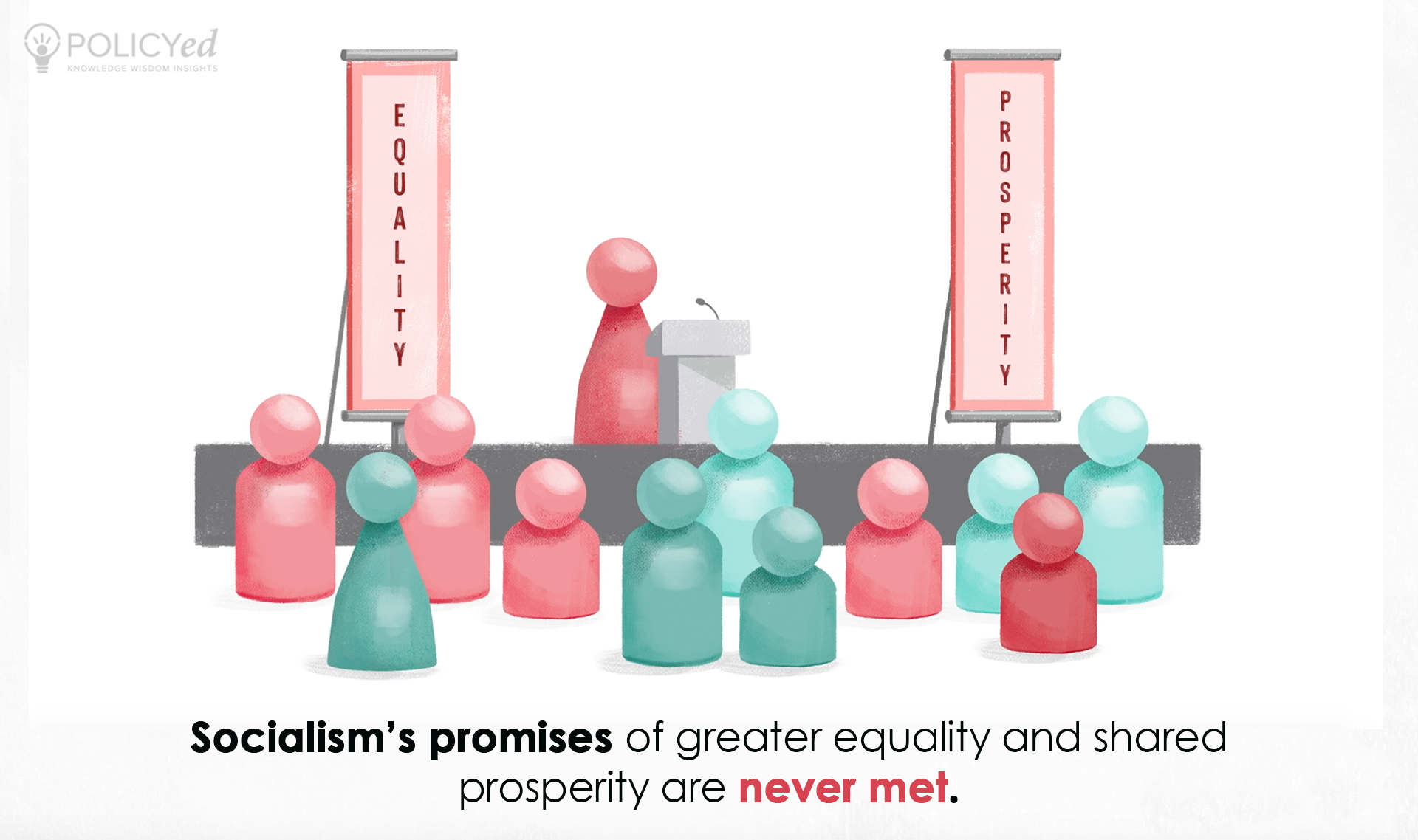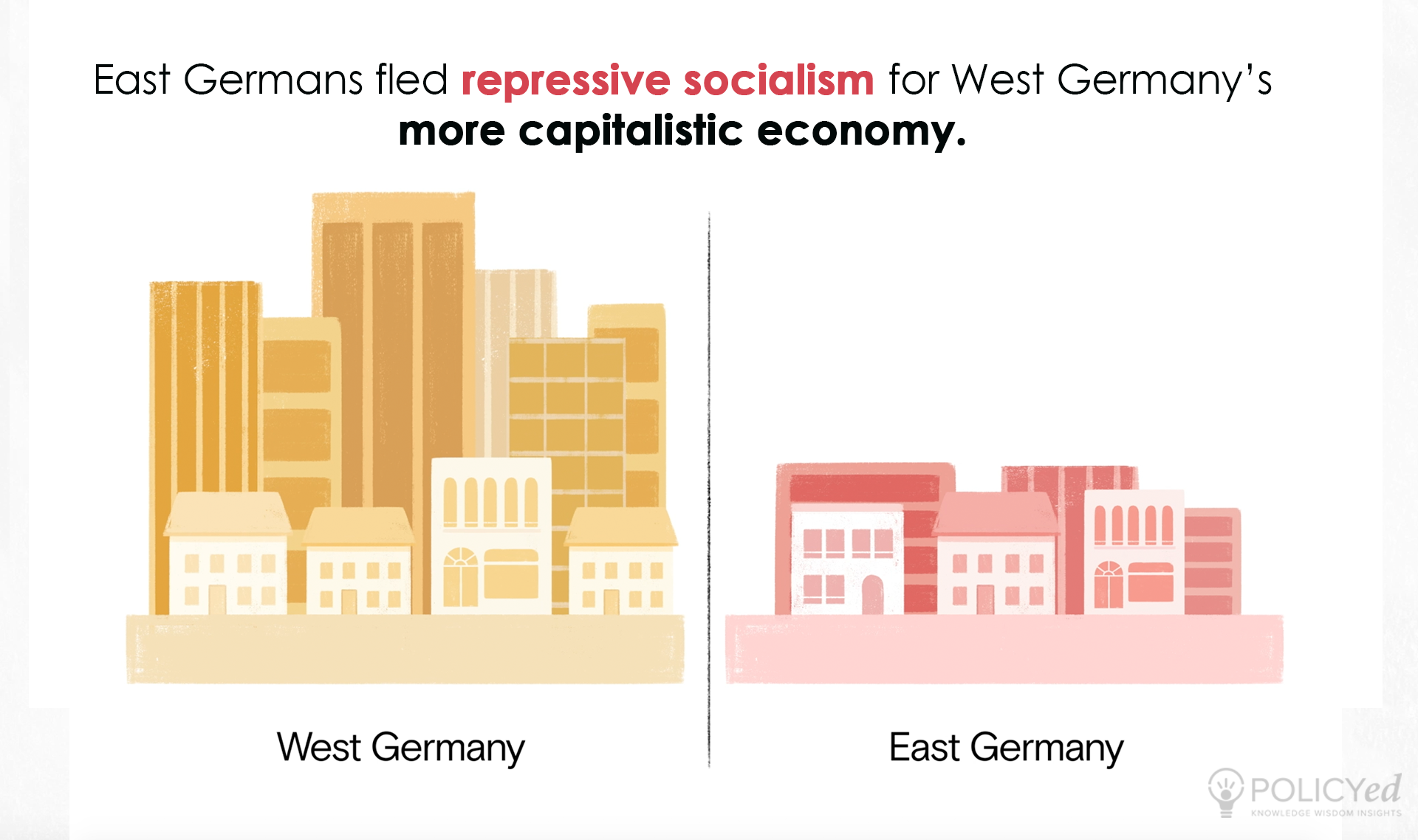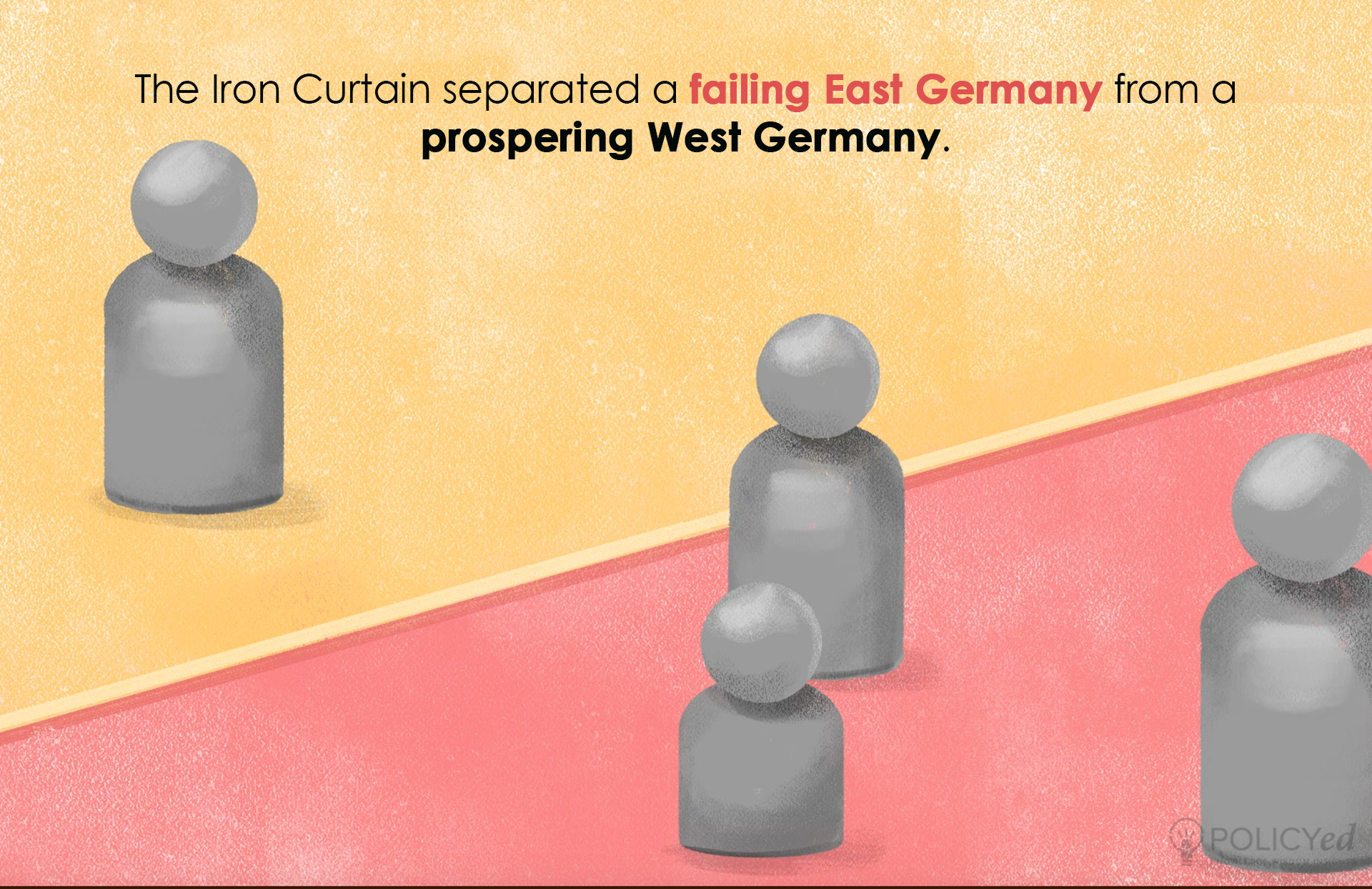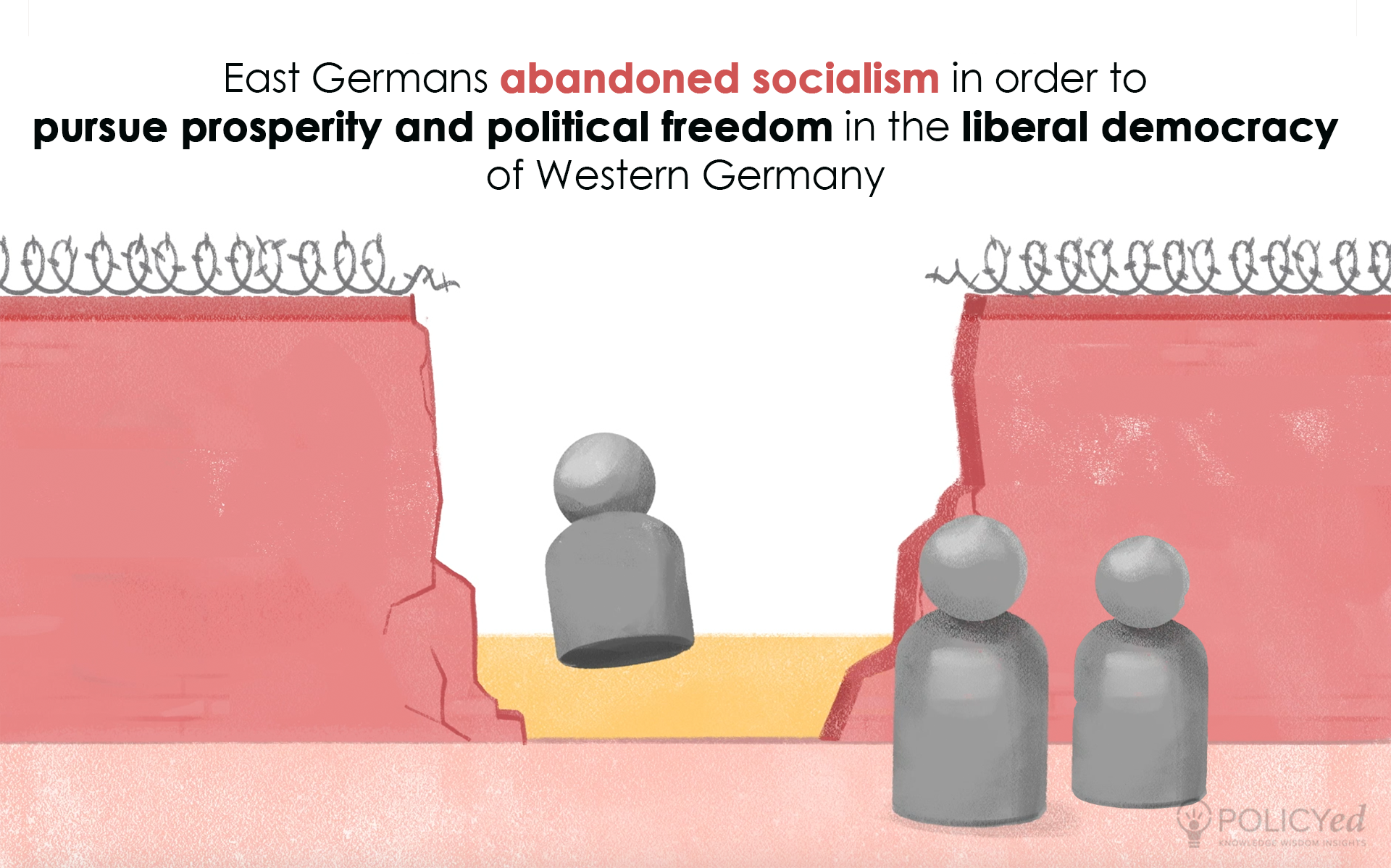Key Takeaways
A False Allure
In response to perceived inequality and injustice in free-market economies, people often turn to socialism. Socialists promise that their policies would lead to greater equality and shared prosperity. But these promises are never kept. The experiences of East and West Germany offer us clear examples of how socialism and capitalism affect people’s prosperity.
Voting with Their Feet
After World War II, Germany was divided into two separate countries, East and West. East Germany’s socialism was a clear contrast to West Germany’s more capitalist economy. For over ten years, many people fled East Germany’s repressive socialism to West Germany’s capitalism and freedom. East Germans only stopped voting with their feet when their government made it impossible to leave. By 1961, prohibitive barriers stretched across the whole country, and the Berlin Wall had been completed.
A Deep Division
Why did East Germans want to leave? In just a few decades after their division, West Germans became twice as well off as East Germans. Workers owned cars in the West, a phenomenon relatively unknown on the other side of the Iron Curtain. In public, East Berlin’s citizens avoided contact with outsiders and feared authorities. They had no free speech. Critics of the government were jailed.
Not-So-Tough Decision
After the collapse of the Soviet Union, the East Germans chose to abandon socialism in order to pursue greater prosperity and political freedom by joining the liberal democracy and social market economy of Western Germany. Socialism may promise prosperity, but history shows that it never keeps its promises.




